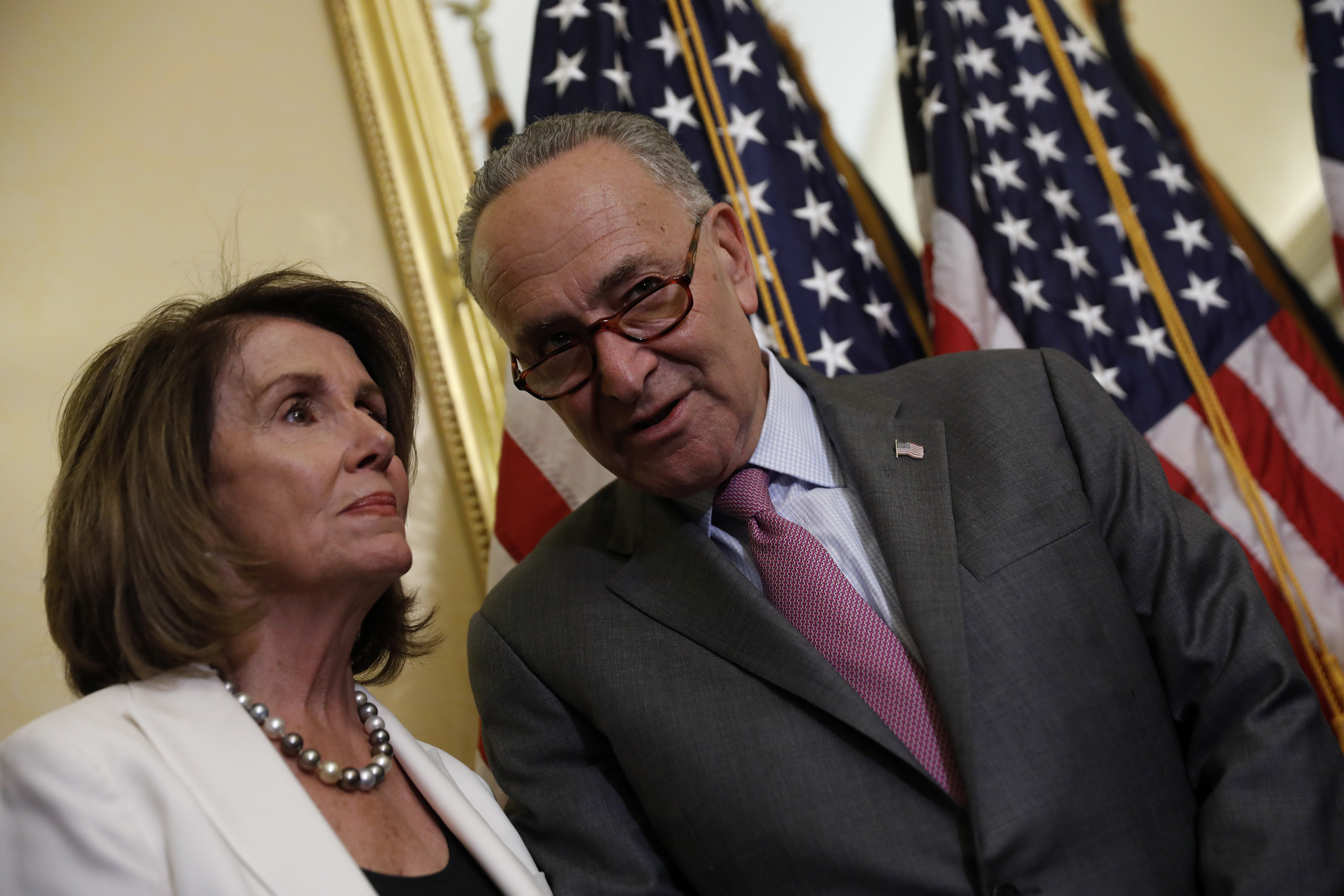What Democrats can learn from Republican ruthlessness
Do Democrats even realize they're in a street fight?


A free daily email with the biggest news stories of the day – and the best features from TheWeek.com
You are now subscribed
Your newsletter sign-up was successful
The Supreme Court heard oral arguments Monday for a case of tremendous import for public sector unions: Janus vs. AFSCME. The result of a generation of well-funded conservative effort, the case is widely expected to result in a huge loss for public unions, the last bastion of union strength in the country.
It's also an important demonstration of how Republicans do politics: by aiming not just to advance their own ideological agenda, but to ruthlessly undermine their political opponents in the process. Democrats could stand to learn a great deal from it.
So what is Janus vs. AFSCME about? Mark Janus, a man who works at the Illinois Department of Healthcare and Family Services, is suing the American Federation of State, County, and Municipal Employees (AFSCME) over union dues. As part of the union contract, dues for collective bargaining are automatically deducted from the paychecks of all workers covered by that contract. In his writings on the case, Janus leans very heavily on the language of freedom, complaining about "mandatory union fees," "nobody asked me," "forced to pay," and so forth.
The Week
Escape your echo chamber. Get the facts behind the news, plus analysis from multiple perspectives.

Sign up for The Week's Free Newsletters
From our morning news briefing to a weekly Good News Newsletter, get the best of The Week delivered directly to your inbox.
From our morning news briefing to a weekly Good News Newsletter, get the best of The Week delivered directly to your inbox.
This pose conceals the fact that, just as with so-called "right-to-work" laws for the private sector, Janus wants the Supreme Court to force states to abridge their freedom of contract between governments and unions — all so that unions would be forced to support shirkers like him who would be covered by a union contract without having to contribute anything to support it.
Ultimately, resources are scarce and therefore government must make binding choices, backed up by the threat of force, about who gets what. Like most conservative rhetoric about liberty, Janus' argument is hiding a preference for who gets coerced — in this case, left-leaning states and unions — behind a facade of reducing coercion in general.
So we should be clear about where this sort of argument comes from. It's the result of decades of lavish subsidies of right-leaning law and economics departments, the grooming of right-wing hacks there and in conservative think tanks, and their placement throughout the federal judiciary, where they can stamp out rulings advancing conservative politics. Meanwhile, right-wing media does its part by kicking up dust portraying those rulings as advancing liberty and attacking "judicial activism" (meaning any legal opinion which is not conservative).
And in this case, the major way conservative politics is advanced is by smashing left-leaning institutions. Public sector unions support Democrats, and so they must be destroyed, period.
A free daily email with the biggest news stories of the day – and the best features from TheWeek.com
Democrats ought to wake up to the fact that they're in a fight, and start throwing some haymakers of their own — that is, political moves that boost their own power or undermine that of Republicans. Plus, what constitutes a political punch for Democrats comes with real policy merits.
For one very obvious example, they could pass statehood for D.C. and Puerto Rico at the first available opportunity, thus granting representation to millions of unjustly oppressed colonial subjects and guaranteeing a slate of new Democratic senators and representatives at a stroke. Sharply higher taxes on the rich, corporations, and investment income would not just reduce sky-high inequality, but cut the amount of cash the ultra-rich can throw around on ideological indoctrination. Anti-trust action would not just improve the American economy, but also break up the media monopolies of a handful of extreme right-wing plutocrats that badly distort the national discourse. (That might cost Democrats a few big donors from the ranks of Google and Facebook, but what they lose in money they'll gain in greater freedom to pass popular legislation.)
More interestingly, as Rachel Cohen notes, the Janus case itself might open the doors for a slew of new pro-union cases. In previous legal precedence, courts have drawn a careful distinction between union's collective bargaining and their political activities, and thus many states have imposed sharp restrictions on collective bargaining rights. But if collective bargaining is simply a form of political speech — as Janus himself argues, "AFSCME uses my monthly fees to promote an agenda I don’t support" — then a decision in favor of him would allow unions to file new suits challenging those restrictions.
Should that happen, the partisan hacks on the Supreme Court might do their level best to cook up some new reason that corporate donations are speech, but union bargaining is not. But they might not be able to stomach it, as when John Roberts protected ObamaCare from an ultra-tendentious judicial activism attempt.
At any rate, this sort of constant fighting, sustained over generations, is how you bend the janky and unwieldy American political system. The Democrats' next chance to pass legislation — perhaps coming in 2020 — is likely to be brief. They must prepare as many big swings as possible.
Ryan Cooper is a national correspondent at TheWeek.com. His work has appeared in the Washington Monthly, The New Republic, and the Washington Post.
